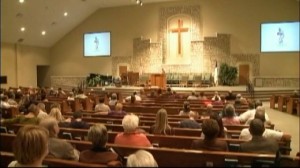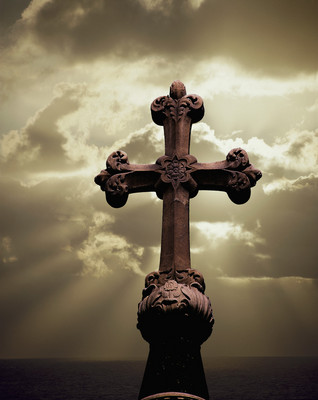CIA Report: STATUS OF THE PROTESTANTS IN BULGARIA
https://www.cia.gov/readingroom/document/cia-rdp82-00457r006100810004-5
STATUS OF THE PROTESTANTS IN BULGARIA
| Attachment | Size |
|---|---|
| 134.43 KB |
The Pew Forum: Protestants no longer majority in U.S.
 A new study by the Pew Forum on Religion & Public Life found that Protestants now make up 48% of Americans, compared with nearly two-thirds in the 1970s.
A new study by the Pew Forum on Religion & Public Life found that Protestants now make up 48% of Americans, compared with nearly two-thirds in the 1970s.
The decline, concentrated among white members of both mainline and evangelical denominations, is amplified by an absence of Protestants on the U.S. Supreme Court and the Republican presidential ticket for the first time. “It’s a slow decline but a noticeable one,” said Cary Funk, a Pew senior researcher. Funk said a major factor driving the decline is an increase in religiously unaffiliated Americans to 20%, up from 15% five years ago.
Two-thirds of the religiously unaffiliated still say they believe in God. But they overwhelmingly expressed disenchantment with religious organizations for being too concerned with money, power, rules and politics.The study did not give reasons fewer Americans now identify with any religion. But it presented theories that included political backlash against the religious right, delays in marriage, broad social disengagement and secularization related to economic development.
Some analysts said a softening of American religiosity could affect such areas as charitable giving and volunteerism, which traditionally have been driven by churches. Others, however, said that ideals originally identified as Protestant and Puritan have become firmly entrenched as secular American virtues. The idea of America as a “city set on a hill” — a biblical phrase — with a special destiny to lead the world to freedom and democracy remains a bedrock civic value, said Richard Land of the 16-million-member Southern Baptist Convention, the nation’s largest Protestant denomination.
“America is a nation with the soul of a church, and that soul is Puritan-Protestant,” said Land, president of the convention’s Ethics & Religious Liberty Commission. “But in terms of defining the purpose of the nation, it’s been secularized long ago.” The study was based on a national survey of 2,973 adults conducted between June 28 and July 9 using land lines and cellphones. An additional 511 interviews were conducted with religiously unaffiliated adults.
In a counterweight to evangelical Christians who tend to back Republicans, the vast majority of religiously unaffiliated Americans — who number 46 million — vote Democratic and are politically liberal, the study found. Two-thirds support President Obama, compared with 27% for Republican nominee Mitt Romney. A majority of the unaffiliated support legal abortion and same-sex marriage.
The trend toward dropping away from organized religion was evident across gender, income and educational levels. But it was most apparent in the Northeast and West and among the young, the study showed. A third of adults under 30 have no religious affiliation, compared with just 9% among those 65 and older. Mark Chaves, a Duke University sociologist of religion, said some young people turn to churches when they marry and have children.
Over 100,000 Protestants in Bulgaria
 Fifteen years after the Fall of the Berlin Wall, the Bulgarian Protestant movement claims over 100,000 members. Although the Bulgarian National Statistical Institute counted only 42,000 Protestant believers in Bulgaria for the 2002-2003 National Census, Pentecostal denominations report a much larger number. As early as 2001, the Church of God presented documentation for 32,000 members with 250 ministers in close to 400 congregations nationwide. In 2003 the Bulgarian Assemblies of God reported the following statistics: 550 churches and outstations, over 50,000 members and adherents, 150 national pastors, one Bible school with 23 enrolled students and an extension program training 150 students. Combined with the membership of the remaining Protestant denominations in Bulgaria these statistics give a figure of over 100,000 Bulgarian Protestant believers in a nation of eight million.
Fifteen years after the Fall of the Berlin Wall, the Bulgarian Protestant movement claims over 100,000 members. Although the Bulgarian National Statistical Institute counted only 42,000 Protestant believers in Bulgaria for the 2002-2003 National Census, Pentecostal denominations report a much larger number. As early as 2001, the Church of God presented documentation for 32,000 members with 250 ministers in close to 400 congregations nationwide. In 2003 the Bulgarian Assemblies of God reported the following statistics: 550 churches and outstations, over 50,000 members and adherents, 150 national pastors, one Bible school with 23 enrolled students and an extension program training 150 students. Combined with the membership of the remaining Protestant denominations in Bulgaria these statistics give a figure of over 100,000 Bulgarian Protestant believers in a nation of eight million.
A conformation to these statistics was published in connection with the resent crisis in the Bulgarian Orthodox Church by Dr. Stephen Penov, a professor at the Sofia University and a member of the Bulgarian Academy of Science. Dr. Penov, who has served as a Parliament expert of human rights and faith confessions, claimed that the members of classical Protestant churches in Bulgarian exceeded 60,000 while new Protestant denominations have a membership of approximately 50,000. The Catholics in Bulgaria are approximately 70,000, the Muslims 750,000 and Eastern Orthodox 6,000,000. The growth of Bulgarian Protestant movement to over 100,000 members is colossal compared to the 1975 statistics found in Klaus-Detlev Grothusen, Bulgarien, (Guttingen: 1990, p. 564):
| Denominations | Membership | Clergy | Parishes |
| Pentecostal | 5,000-6,000 | 36 | 43 |
| Adventist | 3,500 | 40 | 20 |
| Congregationalist | 2,600 | 24 | 26 |
| Methodist | 1,000 | 15 | 13 |
| Baptist | 700 | 7 | 10 |
| Total | 12,800-13,800 | 122 | 7112 |







